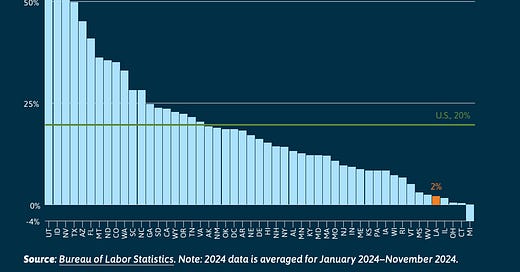Poor state, even poorer leadership
A grim new report about Louisiana's economy and environment should be an urgent call to action for everyone who cares about its future. Instead, our leaders work overtime to make us a pariah state.
Anyone who cares about Louisiana’s future should read a sobering new report from The Data Center in New Orleans, “Pathways to Prosperity: Louisiana.”
Authors Allison Plyer, Taylor Savell…
Keep reading with a 7-day free trial
Subscribe to Something Like the Truth: By Robert Mann to keep reading this post and get 7 days of free access to the full post archives.




